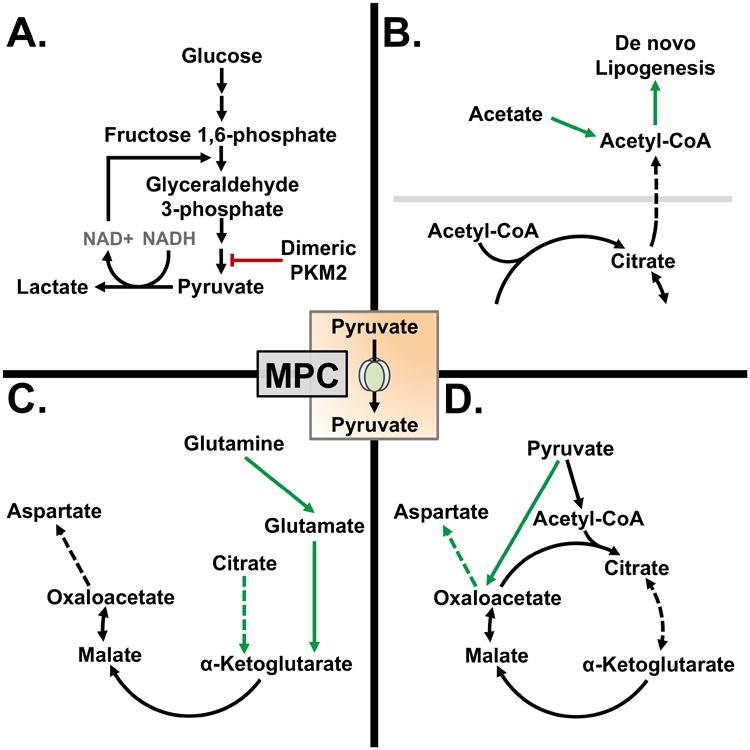Figure 2.

Metabolic reprogramming alters pyruvate metabolism in some cancers: A) Dimeric PKM2 prevents the glycolytic production of pyruvate. Pyruvate is shunted away from mitochondrial metabolism by reduction to lactate. B) Citrate produced by the TCA cycle is converted to acetyl-CoA in the cytoplasm for de novo lipogenesis. Acetyl-CoA may also be generated directly from acetate by acetyl-CoA synthetase 2. C) In the absence of MPC activity in highly oxidative cancers glutaminolysis maintains TCA cycle intermediate pools. When MPC activity is decreased, reductive carboxylation of α-ketoglutarate supports citrate production for de novo lipogenesis. D) Some cancers rely on pyruvate carboxylase to produce oxaloacetate. Oxaloacetate may be transaminated to aspartate to support protein synthesis.
